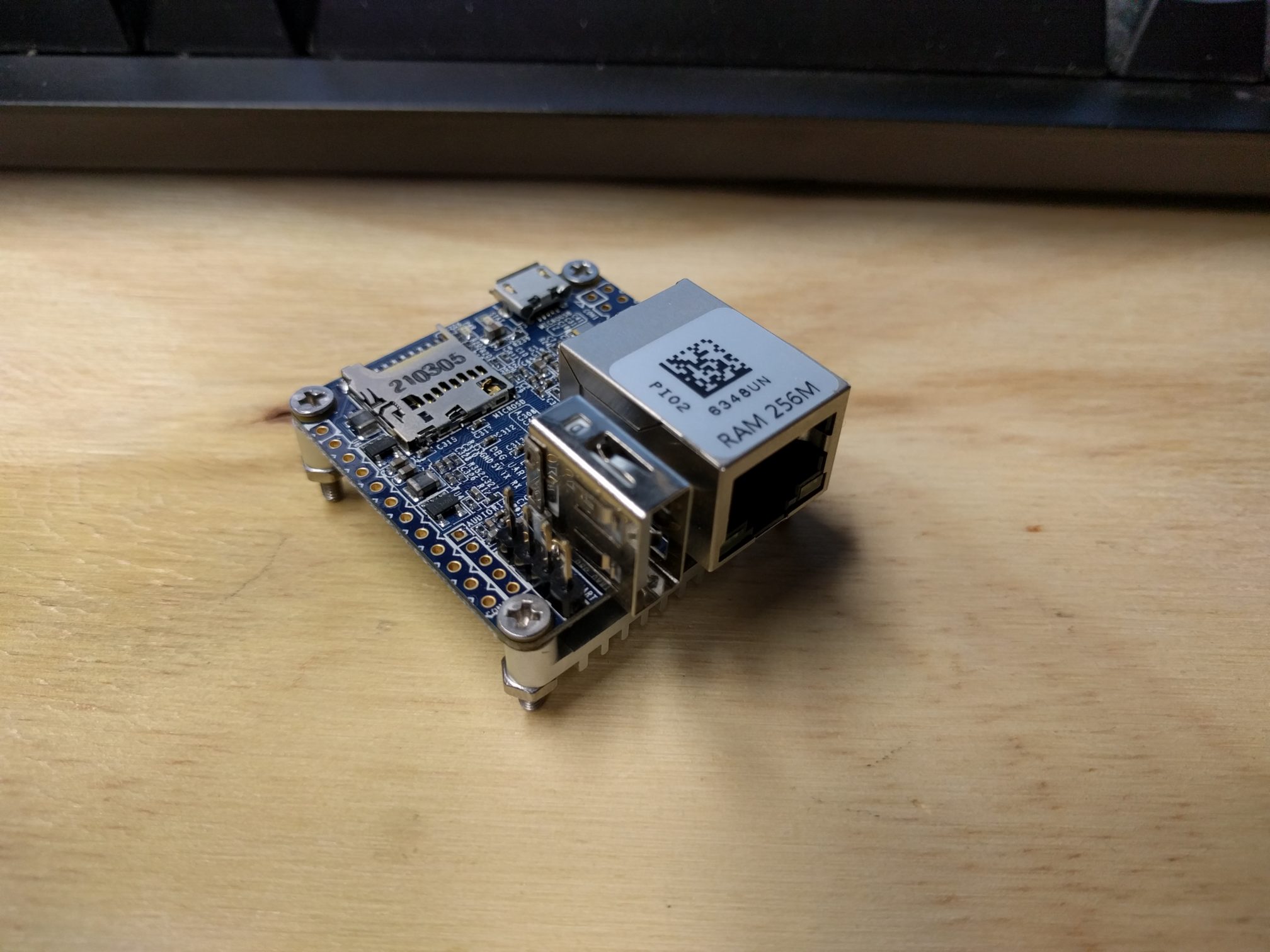I picked up a few NanoPi Neo boards from FriendlyElec (also known as FriendlyArm, I also have a couple Mini2440’s from the time “Before ARM SBC’s were cool”). At $7.99 USD each, they were hard to pass up. The shipping certainly was though, so I got 3 of them to make it less painful. (Twist my arm, right?).
***Update: These are available from a US distributor now)***
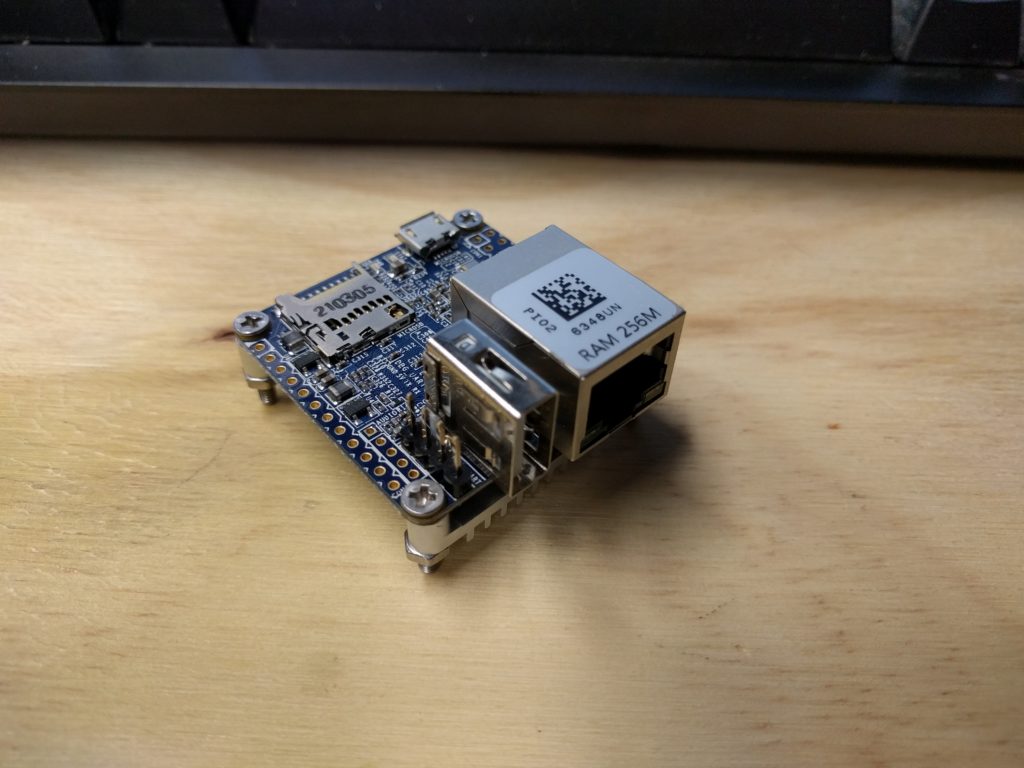
So, like most Chinese boards jumping on the “Pi” train, this is powered by an Allwinner SoC. In this case it’s the Allwinner H3, a slightly above average, but underwhelming processor manual is available. It comes packaged with either 256 or 512 MB of RAM, it’s clearly not intended to replace anyone’s high-powered server, but could be fun for hardware experimenting, or as a quick and dirty CUPS print server.
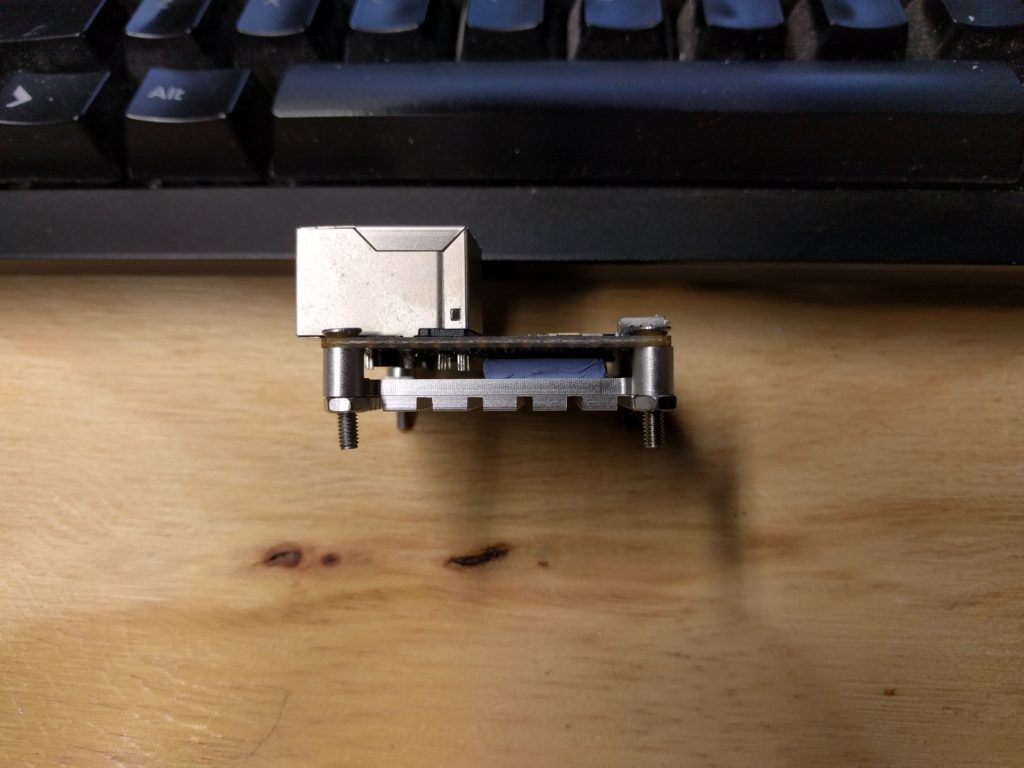
There are reports this board gets very hot, so I got the heat sink, which amusingly came with a seemingly 5mm thick thermal adhesive pad. In my light testing so far I’ve had no temperature issues, but I haven’t gotten all four cores really humming yet either. I may look into a more aggressive option if it needs to happen (thermal adhesive with a copper spacer comes to mind, will probably cost as much as the board).
Simple Upgrade of I/O
The board alone has only 1 traditional USB port available, however 2 are broken out via the 0.1″ header, so I took the liberty of slapping a quick breakout board together that happily fit quite nicely. Make sure, as always, the D+ and D- wires are the same physical lengths, or else you’ll anger the differential signal gods.
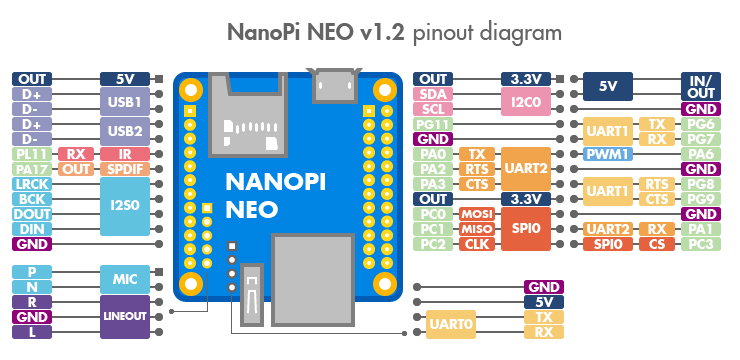
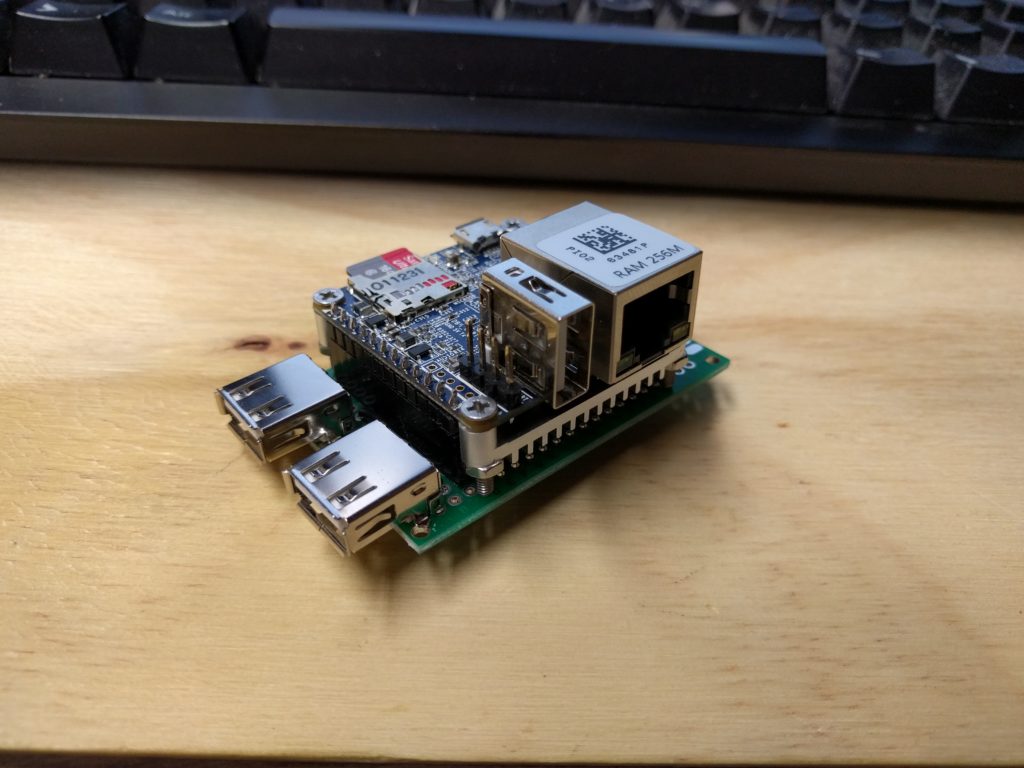
I’m not sure what else I’ll add to my little breakout, maybe a small headphone amplifier or a simple line-out to see how the on-board DAC performs, maybe some buttons and sensors. For now I’m glad I can hook up wifi and a USB drive at the same time.
Operating Systems
So far I have run the image provided on the FriendlyElec Wiki for the NanoPi Neo (Ubuntu Core) and DietPi. DietPi has more interesting and friendly tools preloaded for beginners, and it is likely to be supported for a while. ***Update 2/2017*** : I have also run Armbian with great success.
